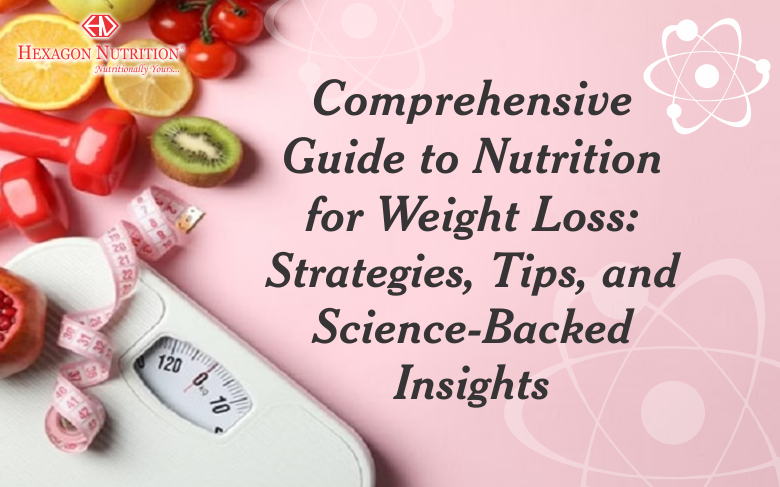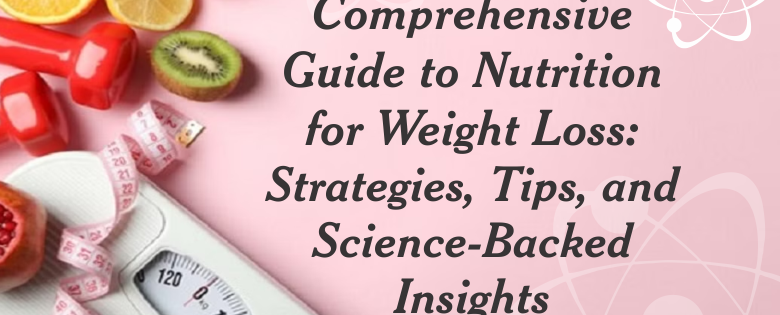
Introduction:
In the pursuit of weight loss, understanding the intricate relationship between nutrition and sustainable fat loss is paramount. While exercise undoubtedly plays a crucial role, it’s the foundation of a well-balanced diet that truly drives long-term success. In this extended guide, we’ll delve deeper into the nuances of nutrition for weight loss, unveiling unique strategies, expert tips, and evidence-based insights to help you achieve your goals and maintain a healthy lifestyle.
Understanding the basics of nutrition for weight Loss:
At its core, weight loss is fundamentally about achieving a caloric deficit, where you consume fewer calories than you expend. However, the quality of those calories matters significantly. Opting for nutrient-dense, whole foods over processed, calorie-dense options can make a profound difference in your weight loss journey.
Balanced macronutrient intake:
A balanced intake of macronutrients—carbohydrates, proteins, and fats—is essential for sustainable weight loss. Carbohydrates provide energy, proteins support muscle growth and repair, and fats aid in nutrient absorption and hormone regulation. Aim for a balanced distribution of macronutrients in your diet to promote satiety, maintain muscle mass, and support overall health.
The role of protein:
Protein is particularly important for weight loss due to its ability to increase feelings of fullness, reduce appetite, and support muscle maintenance during calorie restriction. Including lean sources of protein such as chicken, fish, tofu, and legumes in each meal can help you stay satisfied and minimize muscle loss while losing weight.
Navigating carbohydrates:
Carbohydrates often get a bad rap in weight loss circles, but they’re an essential source of energy and play a crucial role in overall health. Instead of eliminating carbs entirely, focus on consuming complex carbohydrates from sources like whole grains, fruits, and vegetables, which provide fiber, vitamins, and minerals while promoting satiety and stable blood sugar levels.
The Role of gut health:
Emerging research suggests that the health of our gut microbiota plays a significant role in weight management. A diverse and balanced gut microbiome can support weight loss by aiding in digestion, nutrient absorption, and metabolism regulation. To promote gut health, include probiotic-rich foods like yogurt, kefir, sauerkraut, and kombucha in your diet, along with prebiotic foods such as garlic, onions, bananas, and asparagus.
Importance of sleep quality:
Quality sleep is essential for overall health, including weight loss. Inadequate sleep can disrupt hunger hormones, increase cravings for high-calorie foods, and reduce motivation for physical activity. Aim for 7-9 hours of quality sleep per night to support your weight loss efforts. Establishing a consistent sleep schedule, creating a relaxing bedtime routine, and optimizing your sleep environment can help improve sleep quality and enhance weight loss outcomes.
Social support and accountability:
Surrounding yourself with a supportive social network can positively impact your weight loss journey. Whether it’s family members, friends, or online communities, having a support system can provide encouragement, accountability, and motivation. Consider joining a weight loss group, participating in fitness challenges, or enlisting the help of a workout buddy or accountability partner to stay on track and achieve your goals together.
The role of mindset:
Adopting a positive mindset is essential for long-term success in weight loss. Cultivate self-compassion, practice gratitude, and focus on progress rather than perfection. Embrace setbacks as learning opportunities and celebrate your achievements along the way. By fostering a healthy mindset and believing in your ability to make lasting changes, you can overcome obstacles and achieve your desired weight loss goals with confidence and resilience.
The importance of healthy fats:
Contrary to popular belief, dietary fats are not the enemy when it comes to weight loss. Healthy fats from sources like avocados, nuts, seeds, and olive oil can actually promote feelings of fullness and help regulate appetite. Additionally, omega-3 fatty acids found in fatty fish like salmon offer numerous health benefits, including reducing inflammation and supporting heart health.
Mindful eating and portion control:
Practicing mindful eating and paying attention to portion sizes can significantly impact weight loss success. Slow down, savor each bite, and listen to your body’s hunger and fullness cues. Portion control techniques, such as using smaller plates, measuring portions, and avoiding distractions while eating, can help prevent overeating and promote mindful consumption.
Hydration as a weight loss ally:
Staying hydrated is crucial for overall health and can also support weight loss efforts. Drinking an adequate amount of water throughout the day can help curb hunger, boost metabolism, and enhance physical performance during exercise. Aim to drink plenty of water, herbal teas, and other hydrating beverages to support your weight loss journey.
Individualized approach:
It’s important to recognize that there is no one-size-fits-all approach to nutrition for weight loss. Factors such as age, gender, activity level, metabolic rate, and personal preferences all play a role in determining the most effective dietary strategy for weight loss. Listen to your body’s cues, experiment with different approaches, and consult with a registered dietitian or healthcare professional for personalized guidance and support.
Practical tips for success:
In addition to focusing on nutrient-dense foods and mindful eating, incorporating these practical tips into your weight loss journey can enhance your chances of success:
- Plan and prepare meals in advance to avoid unhealthy food choices.
- Keep a food journal to track your intake and identify patterns.
- Prioritize regular physical activity, including both cardiovascular exercise and strength training.
- Get sufficient sleep, as inadequate sleep can disrupt hunger hormones and sabotage weight loss efforts.
- Seek support from friends, family, or a registered dietitian to stay motivated and accountable.
Conclusion:
Nutrition plays a critical role in weight loss, and adopting a balanced, nutrient-dense diet is essential for achieving sustainable results. By focusing on whole foods, balancing macronutrients, practicing mindful eating, and incorporating practical tips into your lifestyle, you can support your weight loss goals and embark on a journey to improved health and well-being. Remember, consistency and perseverance are key, and small, sustainable changes can lead to significant long-term success.



